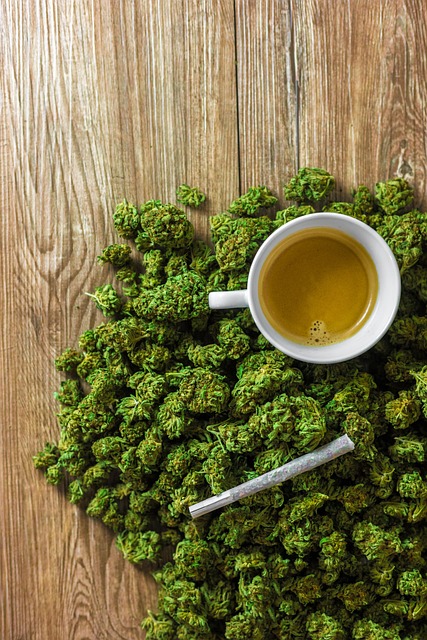Cannabis has gained widespread recognition for its therapeutic benefits, with two of its most well-known compounds being tetrahydrocannabinol (THC) and cannabidiol (CBD). Both THC and CBD can be consumed in various ways, but two of the most popular methods are edibles and tinctures. While these delivery methods may seem similar, they have distinct characteristics that impact the way THC and CBD interact with the body. Understanding the differences between THC and CBD in edibles and tinctures can help consumers make informed decisions about their cannabis consumption.
Understanding THC and CBD
THC and CBD are both cannabinoids found in the cannabis plant, but they have different effects on the body. THC is the psychoactive compound responsible for the “high” associated with marijuana use. It binds to cannabinoid receptors in the brain, producing euphoria, relaxation, and altered sensory perception. On the other hand, CBD is non-psychoactive and is often praised for its potential therapeutic benefits, including pain relief, anti-inflammatory properties, and anxiety reduction.
Both THC and CBD interact with the body’s endocannabinoid system (ECS), which plays a role in regulating mood, pain, appetite, and sleep. However, their interactions with ECS receptors differ, leading to distinct effects. When consumed through edibles or tinctures, the way these compounds are processed in the body can alter their effectiveness, duration, and intensity.
How THC and CBD Work in Edibles
Edibles are cannabis-infused food products such as gummies, chocolates, baked goods, and beverages. They must be digested before the cannabinoids enter the bloodstream. When THC is consumed in edible form, it is metabolized by the liver, converting it into 11-hydroxy-THC, a potent compound that produces stronger and longer-lasting effects compared to inhalation. This process can take anywhere from 30 minutes to two hours, depending on factors such as metabolism and stomach contents.
CBD edibles, on the other hand, are also absorbed through digestion but do not produce psychoactive effects. Instead, they provide more subtle relief for symptoms like pain, inflammation, and anxiety. One of the main advantages of CBD edibles is their long-lasting effects, which can persist for up to six hours or more. However, due to the digestive process, some potency may be lost before CBD reaches the bloodstream, reducing its bioavailability.
How THC and CBD Work in Tinctures
Tinctures are liquid cannabis extracts that are usually consumed sublingually (under the tongue). Unlike edibles, tinctures bypass the digestive system, allowing cannabinoids to enter the bloodstream more quickly. THC tinctures typically take effect within 15 to 45 minutes, making them a preferred choice for users who seek fast relief without waiting for digestion.
CBD tinctures offer a similar advantage, providing quicker absorption and higher bioavailability compared to edibles. They are particularly useful for individuals seeking immediate relief from conditions like anxiety or acute pain. Additionally, tinctures allow for precise dosing since they come with droppers, making it easier to measure and control intake.
Edibles vs Tinctures: Which is Better?
When comparing Edibles vs Tinctures, several factors come into play, including onset time, duration of effects, and bioavailability. Edibles are ideal for users who prefer a delayed yet prolonged experience, making them suitable for managing chronic conditions such as persistent pain or insomnia. However, their delayed onset can lead to accidental overconsumption if users become impatient and take additional doses before the effects fully set in.
Tinctures, on the other hand, provide a more controlled experience with faster effects. They are particularly beneficial for those who need immediate symptom relief or prefer a more predictable dosing method. Additionally, tinctures can be added to food and drinks, making them a versatile option for those who do not enjoy the taste of cannabis extract on its own.
Dosing and Potency Differences
Dosing THC and CBD in edibles versus tinctures can be significantly different due to their absorption rates and metabolic pathways. Edibles generally contain a fixed amount of THC or CBD per serving, but due to the digestive process, their effects can vary widely between individuals. Factors such as body weight, metabolism, and food intake can influence how the cannabinoids are processed and how potent the effects will be.
Tinctures, however, allow for more precise dosing since they are measured in milliliters with a dropper. This precision makes them a preferred option for medical cannabis users who need consistency in their dosing regimen. Additionally, because tinctures have higher bioavailability than edibles, lower doses may be required to achieve the desired effect.
Potential Side Effects and Considerations
Both THC and CBD can cause side effects, although their severity and likelihood vary. THC edibles are more likely to produce strong psychoactive effects, which can sometimes lead to discomfort, anxiety, or paranoia, especially for new users or those with a low tolerance. Overconsumption is also a common issue with edibles due to their delayed onset.
CBD edibles, on the other hand, are generally well-tolerated, but they may cause mild side effects such as dry mouth, drowsiness, or gastrointestinal discomfort in some individuals. The risk of side effects is typically lower with CBD than with THC.
Tinctures carry a lower risk of overconsumption since their effects are felt more quickly, allowing users to adjust their dose accordingly. However, tinctures containing alcohol as a base may cause irritation or an unpleasant taste for some users. Oil-based tinctures, such as those made with MCT oil, are a popular alternative for those who prefer a smoother experience.
Conclusion
Choosing between THC and CBD in edibles and tinctures depends on personal preferences, medical needs, and desired effects. Edibles provide a longer-lasting experience but require patience due to their slow onset. Tinctures, in contrast, offer rapid absorption and precise dosing, making them a convenient option for those seeking quick relief.
Understanding the differences in how THC and CBD work in these forms can help consumers make informed choices and tailor their cannabis use to their specific needs. Whether seeking relaxation, pain relief, or therapeutic benefits, both edibles and tinctures offer unique advantages that cater to different lifestyles and preferences
